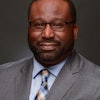BOSTON
Community college professor Kathleen O’Neill was setting the ground rules for her psychology students when she came to an issue she didn’t normally have to address.
“What do we do if you fall asleep?” she asked. “What’s a nice way to gently wake you up? Tap you on the head? Would you want your neighbor to just nudge you?”
Fair question, considering O’Neill’s class begins just before midnight and runs until 2:30 a.m.
This semester, Bunker Hill Community College is offering two classes on the graveyard shift in a move to accommodate an unprecedented boost in enrollment attributed to the struggling economy as people look to augment their job skills without having to pay the tuition costs of more expensive schools.
O’Neill petitioned the college, which charges in-state tuition of $378 per course, to stay open long after most people go to bed after seeing growing demand from parents who must be with their children during the day and workers who wanted to be available to pick up any job shifts. While a handful of other schools have offered late-night classes, the American Association of Community Colleges says Bunker Hill is the only school in the nation offering overnight classes.
Student Omar Cuascut, a 27-year-old father of three young children, says he signed up for an overnight class after losing his job as a morning supervisor of the cleaning department at Harvard University and following his wife’s advice to go back to school. He says he takes care of his youngest son during the day while his wife works.
“So this class works for me,” Cuascut, of the Chelsea neighborhood, said during a coffee break shortly before 2 a.m.
The school, which was featured in the movie “Good Will Hunting” as the location where Robin Williams’ character is an instructor, offered free coffee, tea and chocolate chip cookies this week during the first graveyard shift class. But none of the 19 students in O’Neill’s class had trouble staying awake.
Nicholas Palmarozza, of Melrose, said he chose to go to school at the unorthodox time after previous efforts to balance part-time classes and an evening work schedule at a bookstore. His employer recently cut his hours, convincing him it was time to get qualifications to work in a more lucrative field of computer information technology.
“I was certainly surprised that they were having a class at that time of night, but it just kind of resonated with me,” said Palmarozza, 25. “I was a little excited.”
The nation’s 1,195 community colleges which account for 46.5 percent of all undergraduate students and produce about half of all new registered nurses in the country have reported record numbers of students signing up for classes even as they struggle to deal with unprecedented cuts in state aid triggered by the economic crisis, said David Baime, spokesman of the American Association of Community Colleges.
Miami Dade College Provost Rolando Montoya says an estimated 30,000 students will not be able to get all the classes for which they wish to register and about 5,000 others will not be able to take any class at all. Miami Dade College, the nation’s largest community college, is unable to offer midnight classes to these students because cuts in state funding have crippled its ability to operate beyond its regular schedule, he said.
Bunker Hill Community College, which has nearly 11,000 students, went to unusual lengths to ensure that those attending midnight classes remain safe at its deserted campus in the Charlestown neighborhood, near the site of the Revolutionary War’s Battle of Bunker Hill.
Students are instructed to park their vehicles at a faculty parking lot next to the main entrance. An armed guard checks every vehicle to verify that only those people going into the classroom use the facility. Another security guard requires those showing up to sign in and out.
Hillary Pennington, of the Seattle-based Bill and Melinda Gates Foundation, an influential voice in education policy, said she was surprised that Bunker Hill offered midnight classes and that students agreed to go to school that late.
“Bunker Hill is a good example of an institution that’s doing enormously creative things that go above and beyond what you’d expect to respond to students’ needs,” Pennington said.
Demand for midnight classes at the college “really underscores the fact that we need to create schools that work for people who work, that do not require them to make such extraordinary sacrifice to advance their learning,” she said.
Wick Sloane, who volunteered to teach the midnight English class, said he’s been making plans to keep the students engaged to ensure they keep coming back.
“My colleagues taught me at night courses you always bring some food because you don’t know, people may not have had a meal that day,” said Sloane, who writes about community college teaching in a blog.
He also has a simple plan to stay awake for the overnight class.
“I’m taking a short nap,” he said, “and my mindset is, ‘I’m not working late, I’m getting up early.’ That’s my attitude.”
© Copyright 2005 by DiverseEducation.com


















